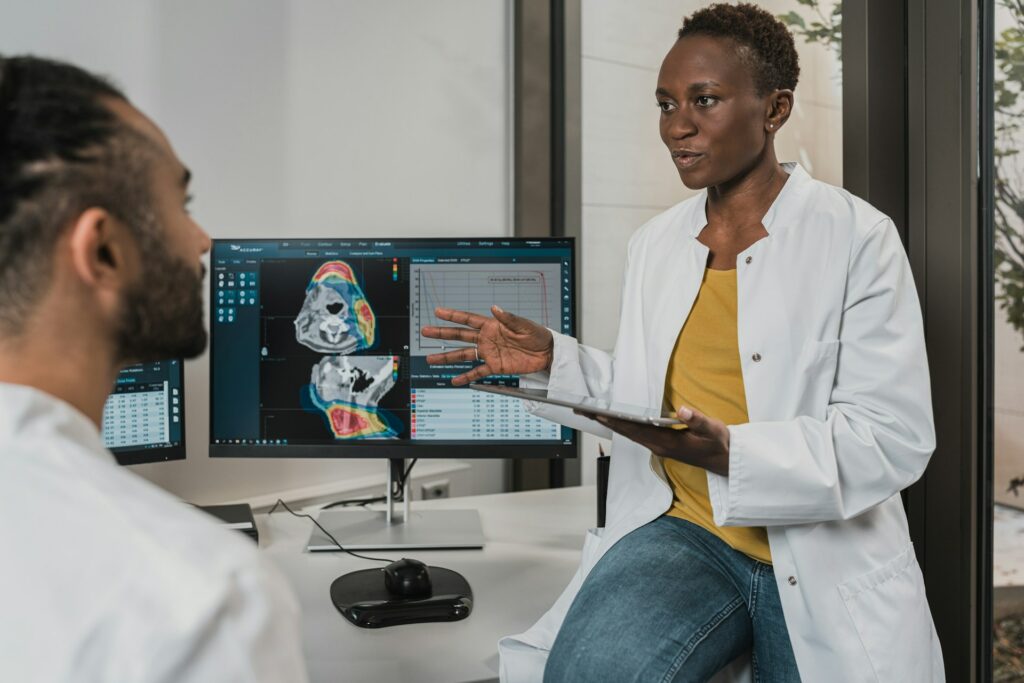How Artificial Intelligence Is Transforming Clinical Trials and the Process of Discovering New Drugs

How Artificial Intelligence Is Transforming Clinical Trials and the Process of Discovering New Drugs
It has been the case for a long time that the process of generating new pharmaceuticals is time-consuming and costly, and it is also accompanied by a significant amount of uncertainty. It takes over ten years and billions of dollars on average to move a new medication from the laboratory to the market for sale to the public. On the other hand, artificial intelligence (AI) is bringing about a revolution in the fields of clinical trials and drug development, resulting in timelines that are shorter, more accuracy, and a reduction in expenses. Artificial intelligence is revolutionizing the manner in which pharmaceutical research is carried out via the analysis of enormous datasets and the prediction of results.
1. Comprehending Artificial Intelligence in the Development of Pharmaceuticals
The use of artificial intelligence in drug development entails the employment of machine learning, deep learning, and predictive analytics in order to identify prospective therapeutic candidates, optimize the molecular structures of those candidates, and forecast their effectiveness and safety. Researchers are able to make better-informed judgments and minimize the trial-and-error method that has historically been linked to drug development via the use of artificial intelligence, which allows them to handle complicated biological and chemical data at scale.
2. Expediting the Process of Drug Discovery
Artificial intelligence algorithms are capable of analyzing millions of molecule compounds in order to determine which ones have the most potential for therapeutic impact. Artificial intelligence (AI) is able to filter down choices at a much faster rate than traditional approaches by anticipating how compounds would interact with certain proteins or disease targets. This process cuts the amount of time required for early-stage drug research from years to months.
3. Anticipating the Safety and Efficacy of Drugs
Predicting the way in which a molecule will act inside the human body is one of the most significant issues in the field of drug development. Models that are run by artificial intelligence are capable of simulating biological interactions, foreseeing possible adverse effects, and predicting how effective a treatment will be. Due to this predictive power, researchers are able to concentrate their efforts on the compounds that have the most promise, which in turn minimizes the risk of expensive failures in later phases of the study.
4. Repurposing of Pharmaceuticals
Furthermore, artificial intelligence (AI) is making it easier to repurpose pharmaceuticals, which involves finding new therapeutic applications for drugs that are already available. Artificial intelligence (AI) has the ability to expedite the process of developing new therapies while also decreasing the associated expenses. This is accomplished by the analysis of clinical data, molecular structures, and patient outcomes, which allows AI to identify possible treatments for illnesses that had previously been neglected.
5. Improving Clinical Trial Design
Clinical trials are costly and take a long time to complete, and they have a high probability of ending in failure. Artificial intelligence (AI) enhances the design of clinical trials by pinpointing patient groups that are appropriate, forecasting the rates of response, and choosing the most effective dose regimens. As a result, the trials are more streamlined and smaller, recruitment is quicker, and the likelihood of success is increased.
6. Recruitment and Retention of Patients
One of the most significant bottlenecks is the process of identifying the appropriate individuals to take part in clinical studies. In order to determine which applicants are qualified, artificial intelligence (AI) examines electronic health records (EHRs), demographics, and medical histories. Artificial intelligence is also capable of monitoring the adherence of participants, predicting the probability of dropouts, and recommending actions to promote retention, which ensures that clinical trials proceed without any problems.
7. Monitoring and Analysis of Data in Real Time
Artificial intelligence (AI) is used to analyze data in real time during clinical trials, which enables it to spot patterns, abnormalities, or adverse occurrences as soon as they occur. As a result of this, researchers are able to change techniques, address concerns about safety in a timely manner, and make judgments based on evidence, which eventually speeds up the process of obtaining regulatory clearance.
8. Decreasing Timeframes and Expenses
Artificial intelligence (AI) is responsible for substantial reductions in the cost and time of drug development via the improvement of trial efficiency, the streamlining of discovery, and the prediction of outcomes with a high degree of accuracy. Not only does this provide pharmaceutical businesses with an advantage, but it also speeds up the process of making novel medications available to patients.
9. Artificial intelligence in personalized medicine
Artificial intelligence is able to assist in the development of medications and treatments that are personalized for certain subgroups of patients by taking into account genetic, environmental, and lifestyle variables. The advent of precision medicine has been brought about by personalized clinical trials, which are led by artificial intelligence (AI) and result in greater effectiveness of therapy and fewer adverse responses.
10. Challenges and Considerations of an Ethical Nature
Artificial intelligence (AI) not only presents amazing opportunities, but it also poses a number of ethical challenges. Because artificial intelligence (AI) depends on sensitive information about patients, data privacy is of the utmost importance. It is possible that biases in training datasets will have an impact on forecasts of medication effectiveness or the results of trials. In addition, regulatory frameworks must change in order to guarantee that processes that are driven by artificial intelligence (AI) adhere to both ethical and safety norms.
11. The Future of Drug Discovery in the Age of Artificial Intelligence
As the technology used in artificial intelligence (AI) becomes more advanced, its importance in pharmaceutical research will continue to grow. It is possible that a completely automated drug discovery pipeline may be achieved via the use of autonomous laboratories, simulations that are driven by artificial intelligence, and integrated real-world patient data. The period between the identification of a disease target and the administration of a safe and effective medication to patients may be drastically reduced as a result of this.
Artificial intelligence is revolutionizing the process of drug development and clinical trials by making it more efficient, more secure, and more accurate. Artificial intelligence (AI) provides researchers with the ability to overcome conventional obstacles in the pharmaceutical development process by enabling them to find potential compounds, anticipate safety profiles, optimize trial design, and monitor participants, among other things. As artificial intelligence continues to develop, it holds the potential of a future in which innovative and effective medicines will be able to reach patients in a more efficient manner, therefore transforming the healthcare industry around the globe.







